There is this word I’m hearing used a whole lot lately. It’s subjected to a gallon of repetitive use, and a half-pint of definition; and, maybe a teaspoon or two of inquiry and inspection when people are willing to admit they’d like to know more about what it means, which from what I can see, is something that hardly ever happens. In short, it seems everybody’s using this word, nobody really has a meaning in mind for it, nor is anyone insisting on one when it’s used. Which is often.
It’s a pejorative term. But it’s a jealous term. It is applied to people who are doin’ good, and due for a come-uppins. It is to be applied to people who have too much to say about how things work, and shouldn’t be able to decide what they’re able to decide.
The White House, and all departments in the executive branch, is supposed to be chock full of people who fit this term that no one’s willing to define.
The term is neoconservative. The slang, shorter version is “neocon.”
I have been wondering about this before; can’t remember when. But as is my typical remedy, I resolved to go to Wikipedia and believe without question every word I find there. Well, the last time I went through this exercise I remember seeing a bunch of antisemitist drivel, or at least, lots of NPOV (Neutral Point-Of-View) description of antisemitist drivel. It seemed to be powered off an association between Norman Podhoretz and the “neoconservative movement.”
I remember thinking how disturbing this continuation was. Antisemites have been receptive to the notion, for centuries, that the Jews are a bunch of dirty so-and-sos who run everything and are due to be taken down a peg. They pop up every generation or so with a new way to make this message appealing…and here in the early 21st century we’ve got some nameless faceless yokels running around calling people “neocons,” with an insinuation that neocons are dirty so-and-sos due to be taken down a peg. So can I look into the term without Godwinning myself? I have doubts now.
It does seem that sympathy for Israel is a defining characteristic of the “neocon.” Nobody has stepped forward and insisted that being a neocon has something to do with being a Jew. But that does seem to be the case. If you’re a neocon, you have to first-and-foremost be a warmonger, but secondly you have to side with Israel against Palestine. Or there’s an expectation you will do this.
Let’s put it this way: If you really are a warmonger but your sympathies are against Israel — let’s say you want to see Hamas drive Israel into the sea — you’ve got quite a long time to wait before anyone calls you a “neocon.” Odds are it won’t happen.
The Urban Dictionary ended up being more helpful than I thought, although I had to read down a little bit to get to the meat of things. And there were a few surprises in store. The first handful of definitions did exactly what the U.D. is supposed to do: Describe what people are intending when they actually use the word out on the street, textbook definitions be damned.
1. neocon
Morally idealistic conservatatives. neocon is short for neo-conservative. Neocons separate themselves from Republicans that are traditionally fiscal conservative.
Slang – Crusading republican.
Slang – Neocons exist separated into two very distinct groups. The largest, group one, are the people below the 99th income percentile. They are religous and/or war-mongering blowhard lemmings who follow the second group; The second group is made up of the top one percent. They cut taxes for themselves, borrow trillions (second term pending), and their behavior is largely the subject of this blog. Of necessity, they pay Rove to pipe tabloid for the Rats. Lemmings rather. Whichever, they both work.
Vlugar – White bible thumping trash.
The draft-dodging neocons running the white house are threatening our future as a great nation.
2. Neocon
Neoconservative. Criminally insane spenders that believe in killing brown people for the new world order. Huge Orwellian government, unfathomable amounts of spending, bomb tens of thousands of people to death to rearrange the globe. Take the worst aspects of the liberal and conservative positions and combine them into one and you would have a NeoCon.
Neocons are the greatest threat to life, liberty and property this country has ever known.
3. neocon
Neoconservative. Originally used to describe left-wingers who crossed the floor, neocons are on the authoritarian right, rather than the traditionally conservative libertarian right. They tend to be very pro-war and adopt the mentality of “We’re better than you and we know it.”
Some more vulgar people call them Neocunts.
“I don’t really like Kerry, but I’d rather see him in power than those horrendous neocons who currently run things!”
I really think I might like definition #6, sub-definition #3 the best…
6. neocon
:
3: Complete and utter dirtbags of pure, unrefined trash that only look out for their own wealth and contribute nothing to the betterment of man kind.
Worthless. Malignant. Junk.
In an act characteristic of the Nazis, the neocons are now proposing that all people who make less than $50,000 a year be exterminated in concentration camps along with the gays, ethnic peoples and atheists.
So you see, it’s not just a simple pejorative. There is hate locked up in this word. I’m still uncertain about what it’s supposed to say…just as uncertain as I was before, maybe even moreso. The word clearly has racial connotations, targeting people who are white, and insinuating that the persons so targeted are the ones with a racist problem.
And I’m starting to doubt this because whatever agendas are bottled up and being subtly referenced here, they seem to be carried aloft by the people using the term, not so much by the people referenced by the term. “…unrefined trash that only look out for their own wealth and contribute nothing to the betterment of man kind [sic].” That kind of sounds like someone approached the “neocon” with a proposition that involved separating him from his money, and the neocon had the audacity to say no.
I have reasons for wanting to know this. I get called a “neocon” quite often, because…well, as a rational, reasonable and logical freedom-loving American, I want terrorists dead. The more the better. Roll the smoking carcasses on in, get ’em counted and roll in some more. It makes me smile, seeing them dead like that. But I’m willing to be reasonable; if a terrorist should be allowed to live because we might get information out of him that leads to more dead terrorists, I’m all for letting him live. Until we get that information. And verify it. THEN kill him. I dream of the day we’re told, “we just can’t produce any more dead terrorist bodies, because it seems we’ve run out of terrorists.” That would be ideal.
Conventional wisdom says this won’t happen because when you kill a hundred terrorists, you make two hundred more. My response is let’s put that to the test. I’ll bet there’s a point where you run out. Hell, the same people who doubt this about terrorists, are the very same ones saying exactly that about penguins, polar bears, snail darters, trees…etc. etc. etc. We’re constantly accusing ourselves of making things extinct. Let’s be guilty of it in this one case. Find out what’s possible.
This is supposed to make me a “neocon” but…go back and read those definitions again. I’m supposed to want to spend more money. I’m supposed to hate brown people. I don’t care about brownness…white terrorists, green terrorists, purple terrorists. Kill ’em all. And another thing, I’m cheap. Lots of ex-wives & girlfriends will confirm that. I drive an eighteen-year-old car. When it comes to killing terrorists, even, I hope they do it as cheaply as possible. That way they can kill more terrorists.
This doesn’t seem to fit the description. Sometimes I think when people call me this, it doesn’t have to do with my appreciation for mile-high stacks of terrorist carcasses at all. Sometimes it seems to have something to do with my surname. Freeberg. You know the secret here? It’s not a jewish name. It doesn’t even really exist. Watch the first act of The Godfather, Part II, and you’ll see how my grandfather got this name. This was very commonplace at that time. My grandfather went through exactly that office. Albin J. Freeberg and Vito Corleone might very well have been bumping into each other.
So I’m not Jewish, I’m not wild about spending money. But I do love reading about terrorists getting killed. I honestly don’t know if this word applies to me. I need to get it defined to figure out if that’s so.
So getting back to it, you know, this is a very strange word. There is giving information to someone, and there is inviting someone to hop onto a bandwagon. This n-word seems to have a lot more to do with the bandwagon than with the offering of information. It says more about the person using the term than the person described by it. Let’s sit down with what we’ve gathered so far, and try to form a picture about the user and see if we get further. Such a person has utopian tendencies because he resents the “neocons” for “contributing nothing to the betterment.” This suggests anti-capitalist leanings. Powerful ones, albeit timid ones. He doesn’t want to admit what he is. He’s probably a “Pie Person” — someone who believes if one guy got a bigger piece of pie, someone else must have gotten a smaller one. He’s not too crazy about President Bush. For all the diverse viewpoints about what the term means, nobody seems to doubt the President is one — even though the President, himself, is not thought to be Jewish — and that the current administration is crammed full of’em. The user of this term, it seems clear to me, likes non-white people better than white people, to what degree I’m not sure. He’s a pacifist, certainly; of all the traits that are supposed to be criticized when you call someone a “neocon,” the willingness to make war is foremost.
I’m gathering the poor fellow has delusions that something is about to happen. There’s this massive takedown of the neocons looming on the horizon. The word is almost always used to describe people who are in a position of power, and are about to not be anymore. There is this none-too-subtle suggestion that we are living in some kind of Age of Neoconservatism, have been for two or three decades, and are now seeing it’s final days.
Wow, I’m almost describing that stringy-haired homeless guy in all the movies with the sandwich board that says “THE END IS NEAR.”
Beyond that, it starts to get a little tough to shed more light on it. But Definition #15 helped a lot.
15. neocon
A combination of “Neo”(new) and “Con”(conservative).
“Neocon” is the term for both a new and old (reborn) form of Conservativism. A break from the Reublican party and return to more traditional Conservative values. This represents a fracturing of the Right. Neocons tend to be young, idealistic, and even dogmatic activists. They tend to have above-average intelligence and education. They are very similar to the movements of the 1960s, but with different core values. They are both pessimistic about the current system, and optimistic about the difference they can make.
It is difficult to lock Neocons down to a specific set of values, because they come from a wide variety of backgrounds (including minorities and gays) and have a wide variance in their ideals. Overall, Neocons are pro-life and support the death penalty. Many neocons are religious or “spiritual” in one way or another. They are not necessarily Christian, although that is the religion to which most of them subscribe. Neocons preach tolerance and coexistence without political correctness. They tend to strongly support both the First and Second Amendments of the Constitution. Neocons support Capitalism, but view being beholden to corporate interests with great distaste. And while compromise is a necessary evil in politics, when in doubt, neocons will stick to their guns. Too much compromise is the hallmark of selling out. They believe that the current political process has become so corrupt that no politician can get anywhere without selling out to various interests.
Neocons view the increasingly centrist philosophy of Republican politicians with the same distaste that their radically Liberal opponents feel for the Democrats. Both of the Big Two parties have been migrating towards the center for some time now, leaving behind many on either side. This is manifested by the power wielded by third-party candidates, which was decisive in determining the outcomes of the 1992, 2000 and 2004 Presidential elections. (And resulting in much backbiting on either the Left or the Right afterwards)
This is a new age in American politics. The rise of neoconservativism was one of the more unforseen and underestimated political developments in the last two decades. With similar fracturing on the Liberal side of the political divide, the power-hold of the Big Two parties (Republican and Democrat) is being shaken, and voting for a third-party candidate no longer means you are just “throwing your vote away.” The future may be a very interesting time for all of us, Liberal or Conservative.
“The neo-conservatism of the 1980s is a replay of the New Conservatism of the 1950s, which was itself a replay of the New Era philosophy of the 1920s” (Arthur M. Schlesinger, Jr.).
As for accuracy, I’m inclined to go with a couple morsels scribbled hastily under #17: “Any person who is winning an argument with a liberal,” and “Catch all term used by liberals when they think they’ve been using Nazi too much.”
But let’s get back to Wikipedia, because it seems pretty clear if we can find a textbook definition, that won’t do us very much good compared to a history of how the term came to be. U.D. Def. #15 makes it clear there is a rich legacy to this word.
The language about Norman Podhoretz had been diminished considerably from what I had last seen, but I did find this, and at first I thought it might be a big help:
As a term, neoconservative first was used derisively by democratic socialist Michael Harrington to identify a group of people (who thought they were liberals) as newly simulated conservative ex-liberals. The term stuck because neoconservatives were confused with true conservative.[4]
Now, that’s interesting. One click took me to the Harrington article which explained the following:
…Harrington wrote The Other America: Poverty in the United States, a book that had an impact on the Kennedy administration, and on Lyndon B. Johnson’s subsequent War on Poverty. Harrington became a widely read intellectual and political writer. He would frequently debate noted conservatives but would also clash with the younger radicals in the New Left movements. Arthur M. Schlesinger, Sr. referred to Harrington as the “only responsible radical” in America, a somewhat dubious distinction among those on the political left. His high profile landed him on the master list of Nixon political opponents.[3]
By early 1970s [Trotskyist leader Max] Shachtman’s anti-Communism had become a hawkish Cold War liberalism. Shachtman and the governing faction of the Socialist Party effectively supported the Vietnam War and changed the organization’s name to Social Democrats, USA. In protest Harrington led a number of Norman Thomas-era Socialists, younger activists and ex-Shachtmanites into the Democratic Socialist Organizing Committee. A smaller faction associated with peace activist David McReynolds formed the Socialist Party USA.
In the early 1980s The Democratic Socialist Organizing Committee merged with the New American Movement, an organization of New Left veterans, forming Democratic Socialists of America. This organization remains the principal U.S. affiliate of the Socialist International, which includes socialist parties as diverse as the Swedish and German Social Democrats, Nicaragua’s FSLN, and the British Labour Party.[4]
Harrington was appointed a professor of political science at Queens College in 1972; he was designated a distinguished professor in 1988. Harrington died in 1989 of cancer. He was the most well-known socialist in the United States during his lifetime.[5]
So some wild-eyed socialist got us to throw away trillions of dollars on the Great Society program, and came up with this derogatory term for anyone who wasn’t along for the ride. That’s pretty much it. I mean, the history part of it.
But I found out a little more. I’ve got this weird habit with Wikipedia that comes from not quite believing anything I read a hundred percent…I keep clicking on the “Talk” tab. I find it interesting. Harrington’s talk-page had an item of additional interest in it.
An anon editor removed the quote from William F. Buckley to the effect that being the most prominent Socialist is America is akin to being “the tallest building in Topeka Kansas.” I found this kind of an endearing quote and am inclined to restore it. Any discussion?
And I was thinking, that’s Buckley at his finest right there. But say…I wonder…what does the discussion page behind “Neoconservative” look like? Maybe I’ve been going about this all wrong. Maybe that will tell me everything I need to know.
 Well, Good Lord. No wonder the article itself used to have all these interesting things that I can’t find anymore.
Well, Good Lord. No wonder the article itself used to have all these interesting things that I can’t find anymore.
“It is simply discourteous to the other editors to make very significant edits without any edit summaries at all to let others know what you are doing with the article…”
“Please dont be so condescending that I have to “learn” to use certain mechanisms…”
“I’m frankly disappointed that you would proceed immediately to re-introduce disputed material without having responded to any of the editors over the past week during which the page was protected.”
“Please stop the nasty personal attacks. Please refer to me–as is basic simple courtesy for any Wiki editor–by my user name. Thanks.”
“God, your awfully thin skinned for someone who styles himself as such a major enemy of “the right”. You really are just a classic cliche of a bully who constantly name-calls whoever you don’t like and is totally emasculated when the tables are turned.”
“Have you tried Viagra? It might make you a more secure editor. Projection indeed! LOL!”
“Why do you so have your panties in a bunch about this Chip?”
“This is just harrassment pure and simple, which is all you know how to do, and yes, I repeat, you are a totalitarian!!!”
“I’m going to request mediation. This article seems desperately to need it.”
And so it goes. As to the actual claim that Harrington originated the term, I was able to pin down that citation and find it online with Google Books…here (chap. 2, pg. 55)…it’s E.J. Dionne opining about things, and to my disappointment there’s no reference or supporting evidence to this. There isn’t even a citation to any specific Harrington work. For all I know, Dionne may be simply opining about Harrington’s authorship itself.
While the New Left was rebelling at liberalism’s left flank, a group of intellectuals who shared some of the New Left’s skepticism began a revolt on liberalism’s right. The revolt of the neoconservatives was far more successful, and they continue to have a powerful impact on American politics.
Neoconservatives initially rebelled against the label neoconservative. They didn’t even invent it; the late Michael Harrington, a democratic socialist, did. Harrington’s intent was to make clear that a group including many who called themselves liberal was in fact a movement of newly conservative ex-liberals. The label eventually stuck because it was so apt — and because over time, so many of the neoconservatives came to accept that they were conservatives after all. By the 1980s, in any event, the term conservative was anything but an insult. Irving Kristol, often described as the movement’s “godfather,” was one of the first to accept the label. He described himslf as “the only living and self-confessed neoconservative, at large or in captivity.” Conceding that political labeling was more a leftist than a conservative craft, Kristol said that conservatives sometims had to live with the handiwork of their foes. “The sensible course, therefore, is to take your label, claim it as your own, and run with it,” Kristol declared. He and his comrades did just that.
Neoconservatism has received so much attention because it was one of the clearest signs of a realignment in American politics. Neoconservatism represented the defection of an important and highly articulate group of liberals to the other side. Precisely because they knew liberalism from the inside, the neoconservatives were often more effective than the old conservatives at explaining what was wrong with the liberal creed. And on many issues, the neoconservatives were right or partly right — and usually interesting even when they were wrong.
Okay, so the word describes Irving Kristol, albeit with his own consent and even with his own participation. The hatred and resentment against those evil Jooooooooos pops up yet again. Well there are other things popping up yet again. As I noted before, neocons have some voice in our policy, a voice thought now to be in the winter of it’s existence. They are Jewish, they are affluent, and what I find to be most telling is that they used to be democrats. Usage of the term says more about the person using it than the person being described by it, so the spirit cloaked under the term is one of loathing, probably resentment over the switchover.
It’s kind of like how Clarence Thomas is loathed much more than Antonin Scalia even though, as far as the persons doing the loathing are concerned, the two justices rule the same way. Thomas is black. He’s thought to be guilty of some kind of betrayal that doesn’t apply to the Italian-American justice. So I guess the only way the Jews can be tolerated by the hard-left democrats, is if the Jews vote the way they’re supposed to…if they “know their place,” you might say.
Once they slither under the barbed wire, peel off that yellow star, and go voting where they aren’t supposed to be voting…they get called “neocons.”
Interestingly, it sounds like a portmanteau involving “neo-Nazi.” If Nazi tendencies have anything to do with this term, they underly the usage of it. It’s a classic case of projection.
There are individuals in mind for this term, and that’s what makes it really unique. It was used specifically to refer to Irving Kristol, as Dionne pointed out; to the extent I can do any of what’s called “research,” it seems formulated more to refer to Podhoretz, at least in the written sources I find. Out on the street, meanwhile, it looks like a reference to Paul Wolfowitz.
In context of the 2008 elections, it is a challenge to the Wolfowitz Doctrine. It invites a debate on this…which would be worthwhile…but it doesn’t really invite debate at all. It smears, it slanders, it gives people instructions about what to think.
It is a word-weapon brandished by socialists. It is a machinery deployed to rope the peacenik hippies, the stoners, the antisemites and the reverse-racists into the big tent of socialism.
These are interesting times, aren’t they?
You call someone a “socialist” and you can take it to the bank, someone’s going to insist on a long, drawn-out debate about the precise meaning of what you just called them, even though it’s unnecessary because it’s pretty well-established what a socialist is. You call someone a “neocon,” and we aren’t supposed to discuss that at all, even though there’s next-to-no agreement about what that word means.










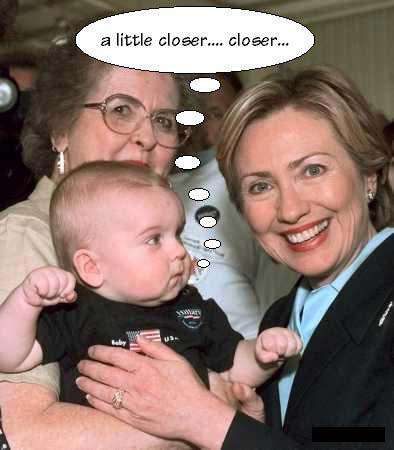 Nearly four years later, this is the slot occupied by hapless Hillary. She could be like her husband, or she could be like tank-commander Dukakis. The country needs her to be strong, so that when she gets her ass beat she leaves in place a Republican victor who will actually stand for something. And kill me some terrorists…not pass flag burning amendments.
Nearly four years later, this is the slot occupied by hapless Hillary. She could be like her husband, or she could be like tank-commander Dukakis. The country needs her to be strong, so that when she gets her ass beat she leaves in place a Republican victor who will actually stand for something. And kill me some terrorists…not pass flag burning amendments. So this bear wanders down the highway near Truckee. A couple cars come along and scare the living hell out of the poor bear, right while he’s on one of those half-mile high bridges, and he clambers over the side. I must confess at this point I don’t have a lot of personal first-hand knowledge about bears where fear-of-heights is concerned, or lack thereof. I guess this fella didn’t have much. Or he had more for the cars.
So this bear wanders down the highway near Truckee. A couple cars come along and scare the living hell out of the poor bear, right while he’s on one of those half-mile high bridges, and he clambers over the side. I must confess at this point I don’t have a lot of personal first-hand knowledge about bears where fear-of-heights is concerned, or lack thereof. I guess this fella didn’t have much. Or he had more for the cars. BULLCUSE (v.)
BULLCUSE (v.)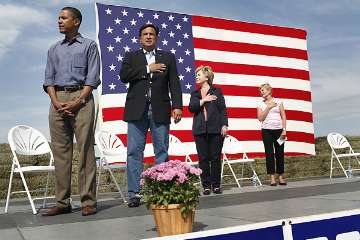 You have the floor,
You have the floor, 
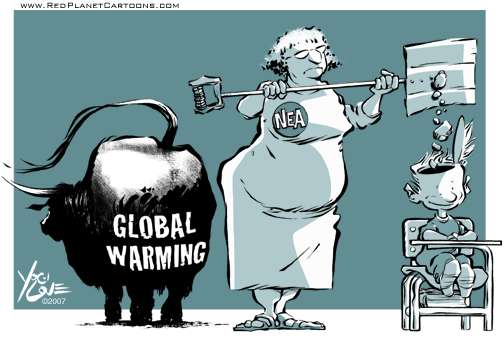
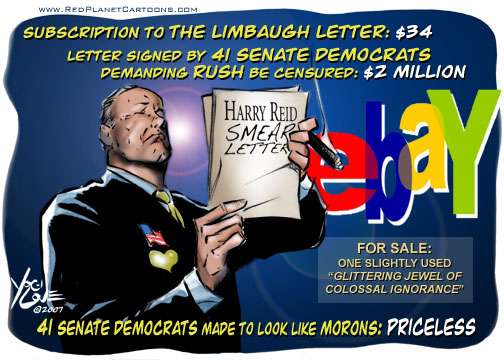
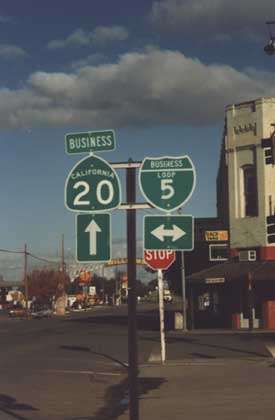 A little background. In late ’96, Bessie was seven years old and had just a little over 200k on her. I rewarded her for her faithful service by wrapping her around a tree. Bessie is a plastic-and-aluminum Toyota that weighs a little over a thousand pounds with a full gas tank, so when I say the tree was no bigger than it needed to be, I’m not talking very much tree at all. Big around as a rake handle. It split Bessie down the middle, sparing the engine but destroying everything else including the radiator.
A little background. In late ’96, Bessie was seven years old and had just a little over 200k on her. I rewarded her for her faithful service by wrapping her around a tree. Bessie is a plastic-and-aluminum Toyota that weighs a little over a thousand pounds with a full gas tank, so when I say the tree was no bigger than it needed to be, I’m not talking very much tree at all. Big around as a rake handle. It split Bessie down the middle, sparing the engine but destroying everything else including the radiator. I’ll always be the kid’s dad, but I’ve found it necessary to change women. That’s a story with considerable detail to it, that I’d rather not explore here…but I don’t think I can let
I’ll always be the kid’s dad, but I’ve found it necessary to change women. That’s a story with considerable detail to it, that I’d rather not explore here…but I don’t think I can let  Well,
Well,